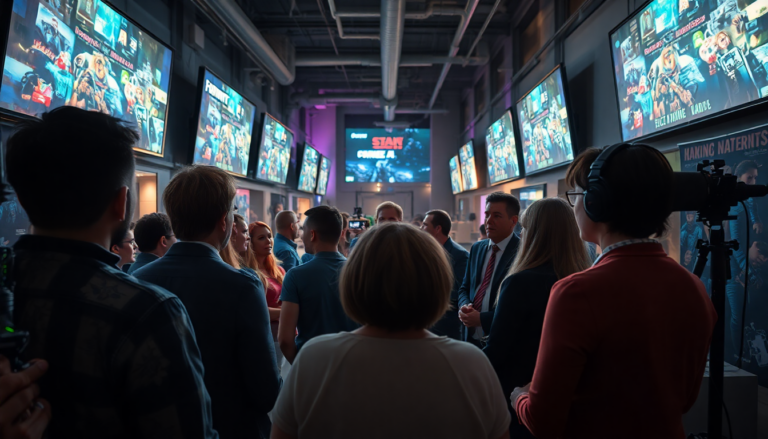Argomenti trattati
The gaming world is buzzing with controversy as the SAG-AFTRA union, representing actors, has lodged a formal complaint concerning the use of artificial intelligence to recreate Darth Vader’s iconic voice in Fortnite. This development not only highlights the growing trepidation surrounding AI’s role in the entertainment sector but also sparks a debate over the rights of performers in an increasingly digital landscape. Could this be the beginning of a major shift in how we perceive voice acting and the value of human talent in video games? I remember when I first heard a voice actor bring a character to life, and that feeling was irreplaceable. But now, with technology advancing at breakneck speed, what does that mean for the future of our beloved characters?
The complaint against Epic Games
The union’s complaint, which has been officially filed with the U.S. National Labor Relations Board (NLRB), accuses Llama Productions—an Epic Games subsidiary—of opting to substitute human performers with AI technology without engaging in negotiations with the union. SAG-AFTRA claims that this move constitutes an unfair labor practice, specifically pointing to the unilateral changes made to the terms of employment without prior notice or bargaining. It’s a bold assertion that raises questions about the balance of power in the gaming industry and the rights of those who breathe life into our favorite characters.
Epic Games has yet to respond publicly to these allegations, but the repercussions of this situation could be monumental. Imagine playing a game where the voices are generated by algorithms, devoid of the emotional nuances that a human actor can bring. I mean, sure, technology can replicate sound, but can it replicate *feelings*? The union emphasizes the importance of bargaining for terms that protect its members, particularly those who have previously embodied characters like Darth Vader in various games.
The significance of Darth Vader’s voice
In the case of Darth Vader, the stakes are particularly high. Players in Fortnite are not just battling the Sith Lord; they can also recruit him and engage in conversations, thanks to this newly introduced AI voice feature. Epic Games announced the innovation with excitement, claiming that the AI recreation would not have been as effective without the approval of James Earl Jones’s estate, the legendary actor who originally voiced the character. His family expressed their hope that this partnership would allow both long-time fans and new players to enjoy the character’s legacy. But at what cost?
As many know, the voice of Darth Vader is not merely a sound; it is an integral part of the Star Wars saga. The idea of replacing that with an AI-generated voice raises eyebrows. Could this signal a future where iconic roles are played by machines rather than the talented individuals who have painstakingly built those characters? Personally, I believe that the essence of storytelling lies in human connection, and technology should enhance that, not replace it.
Broader implications for the industry
The complaint comes amidst rising concern among video game and voice actors regarding the encroachment of AI technology into their domain. Prominent Hollywood figures like Scarlett Johansson have also voiced apprehensions about how their digital likenesses could be manipulated by generative AI. This wave of anxiety isn’t just limited to a few individuals; it resonates throughout the industry as actors from various fields unite to safeguard their rights.
Since the strikes began last year, SAG-AFTRA has been actively seeking agreements concerning the rights of video game voice actors. Many of these performers have refused to work with major companies like Activision, Disney, and EA, demanding clarity over the use of digital replicas in games. There’s a palpable fear that AI could not only reduce job opportunities but also misrepresent the talent that brings characters to life. I can’t help but wonder what the landscape of gaming will look like in five or ten years if this trend continues.
AI’s evolving role in gaming
With AI technology rapidly advancing, the potential for misuse is a pressing concern. Reports have already surfaced of Fortnite players finding ways to manipulate Darth Vader’s character to say inappropriate things during voice chats. This misuse underscores the need for clear guidelines and ethical considerations surrounding AI’s role in gaming. As the boundaries blur between human and machine, can we ensure that technology is used responsibly?
In this climate, the call for collaboration between unions and game developers becomes increasingly urgent. SAG-AFTRA’s leadership has expressed a desire to be involved in discussions about the use of digital replicas, aiming to protect the interests of not just their members but the integrity of the industry as a whole. The future might be uncertain, but one thing is clear: the conversation about AI in gaming is just getting started, and it’s one we can’t afford to ignore.

